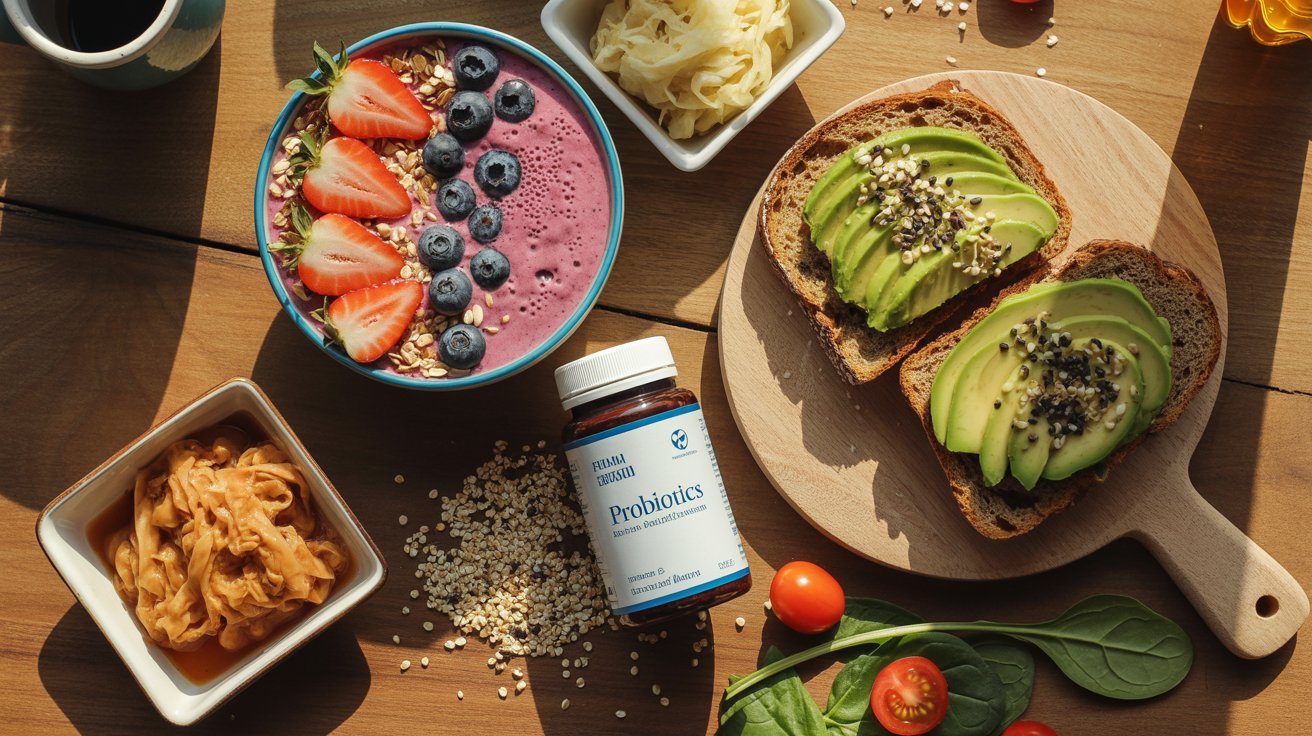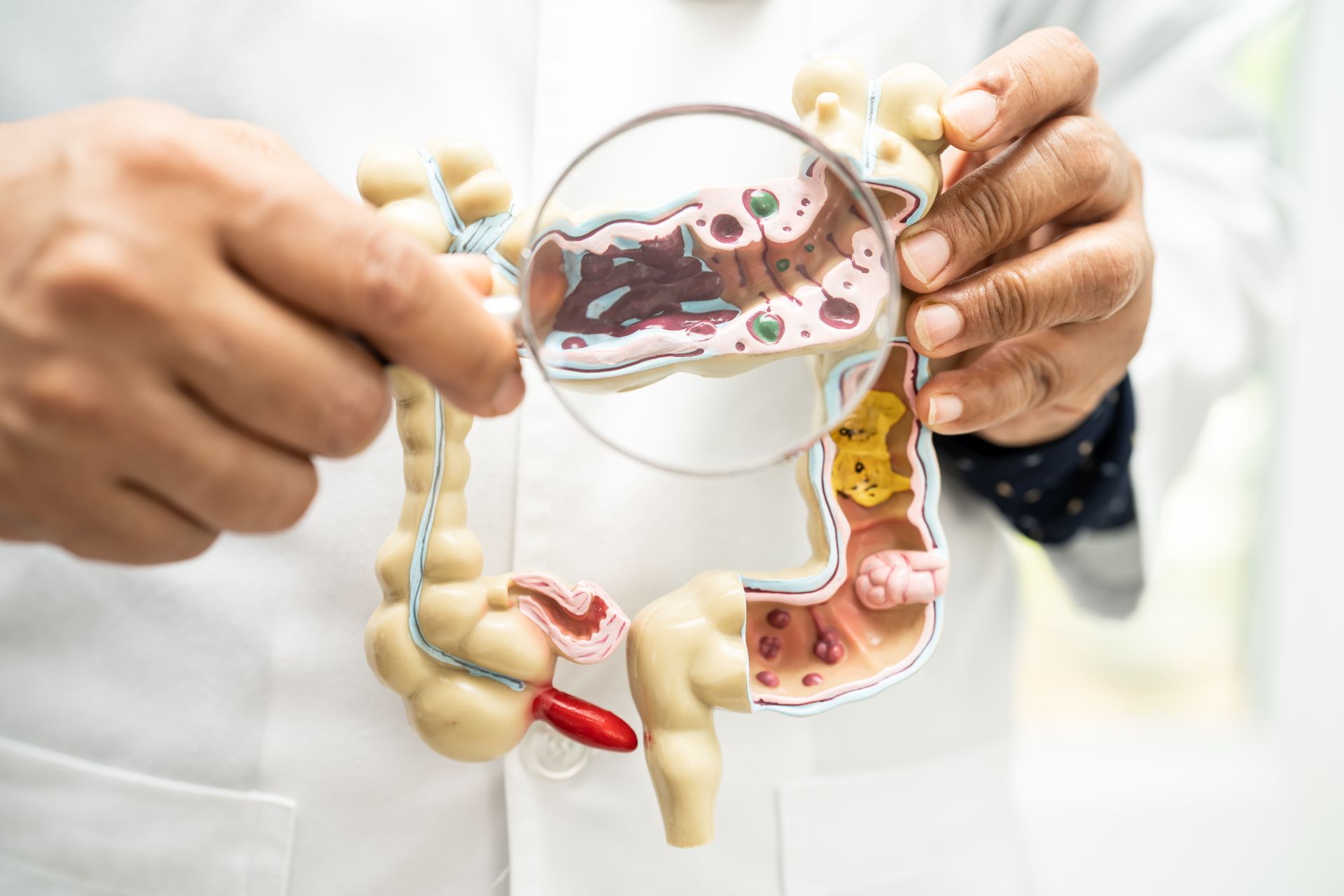Your gut might be controlling your heart health in ways you never imagined. The relationship between gut health and cardiovascular diseases is more profound than most people realize, and understanding this connection could be the key to protecting your heart for years to come.
I used to think heart health was all about cholesterol numbers and cardio sessions. Then I discovered the microbiome, and everything changed. Turns out, those trillions of bacteria living in your digestive system are having constant conversations with your cardiovascular system, and what they’re saying matters.
How Does Your Microbiome Affect Heart Disease Risk?

Your intestinal flora or microbiome isn’t just about digestion anymore. These microscopic residents are actively influencing inflammation, metabolism, and even your blood pressure.
When your gut bacteria are thriving, they produce short-chain fatty acids like butyrate, acetate, and propionate through fermentation of dietary fiber. These compounds are like little messengers that travel through your bloodstream, helping to reduce inflammation and support healthy cholesterol levels.
But here’s where it gets interesting. When dysbiosis strikes, meaning your gut bacteria fall out of balance, everything starts going sideways.
Bad bacteria can produce endotoxins that trigger chronic inflammation throughout your body, including your arteries. This inflammatory response is a major player in atherosclerosis, where plaque builds up in your blood vessels.
What Role Does Intestinal Permeability Play in Hypertension?

Leaky gut syndrome isn’t just a trendy wellness term. When your intestinal barrier breaks down, bacterial toxins called lipopolysaccharides can slip through those compromised tight junctions and enter your bloodstream.
This condition, known as endotoxemia, triggers an immune response that can contribute to high blood pressure and endothelial dysfunction.
The gut-brain axis also gets involved here. Stress affects your intestinal microbiota, which then impacts your cardiovascular system through multiple pathways. It’s like a domino effect that starts in your digestive system and ends up affecting your heart.
Can Probiotics Actually Lower Your Cholesterol?

The research on probiotics and heart health is genuinely exciting. Certain strains of lactobacillus and bifidobacteria can help manage your lipid metabolism by breaking down bile acids in your gut. When these beneficial bacteria are thriving, they can potentially reduce LDL cholesterol while supporting healthy HDL levels.
Fermented foods like sauerkraut and kombucha naturally deliver these beneficial bacteria along with their metabolites. Combined with prebiotics from whole grains and foods rich in inulin and oligosaccharides, you’re giving your gut flora exactly what they need to support your cardiovascular health.
Why Does Inflammation Connect Your Gut to Your Arteries?

Chronic inflammation is the silent troublemaker linking your digestive health to coronary artery disease. When your intestinal bacteria produce pro-inflammatory compounds, they trigger cytokines and inflammatory markers that travel throughout your body. This oxidative stress damages your arterial walls, making them more susceptible to plaque formation.
The metabolism of certain nutrients by your gut microbiota can either fan the flames of inflammation or help put them out. Bacteria that produce butyrate act as anti-inflammatory agents, protecting both your intestinal barrier and your blood vessels. Meanwhile, an overgrowth of certain bacteria can lead to the production of compounds that promote inflammation and insulin resistance.
What’s the Connection Between Gut Bacteria and Metabolic Syndrome?

Here’s where everything converges. Metabolic syndrome, which includes insulin resistance, dyslipidemia, hypertension, and obesity, has strong ties to your gut microbiome. When your intestinal flora are out of balance, they can influence how your body processes glucose, stores adipose tissue, and responds to hormones like insulin.
The enzymes produced during bacterial fermentation affect your metabolic pathways at a cellular level. This impacts everything from your basal metabolic rate to how your body handles dietary fats. Some gut bacteria even influence bile acid synthesis, which affects fat digestion and cholesterol management.
How Can You Support Your Gut for Better Heart Health?

The good news is that you have more control than you think. Start by increasing your intake of soluble fiber and whole grains, which feed beneficial gut bacteria and promote the production of those heart-protective short-chain fatty acids. Think of dietary fiber as fertilizer for your good bacteria.
Adding fermented foods to your daily routine delivers live probiotics directly to your system. These beneficial microorganisms help maintain your intestinal barrier, reduce inflammatory pathways, and support healthy lipid metabolism. Prebiotics work alongside probiotics to create the optimal environment for cardiovascular protection.
Avoiding unnecessary antibiotics when possible helps preserve your microbiome diversity. While antibiotics are sometimes medically necessary, overuse can disrupt the delicate balance of your intestinal microbiota and potentially increase cardiovascular disease risk.
Building Your Heart-Healthy Gut Strategy

The connection between your digestive system and your cardiovascular health runs deeper than surface-level wellness trends. Your microbiome influences cholesterol levels, blood pressure, inflammation, and metabolic health through complex interactions involving the immune system, metabolic pathways, and even your gut-brain axis.
By focusing on gut health and cardiovascular diseases together rather than separately, you’re taking a smarter approach to long-term wellness. Feed your beneficial bacteria with plenty of dietary fiber, support them with probiotics and prebiotics, and watch how your entire system responds. Your heart will thank you for taking care of your gut..
FAQs
Can gut bacteria really affect my heart health? Yes, your microbiome produces compounds that directly influence inflammation, cholesterol metabolism, and blood pressure, all of which impact cardiovascular health.
What are short-chain fatty acids and why do they matter? Short-chain fatty acids like butyrate are produced when gut bacteria ferment dietary fiber. They reduce inflammation and support healthy metabolism throughout your body.
How does leaky gut contribute to heart disease? When intestinal permeability increases, bacterial endotoxins enter your bloodstream, triggering chronic inflammation that can damage arterial walls and contribute to atherosclerosis.
What foods support both gut health and heart health? Focus on whole grains, fermented foods like sauerkraut and kombucha, and prebiotic-rich foods that feed beneficial bacteria while providing heart-protective nutrients.
Can probiotics help lower blood pressure? Some probiotic strains, particularly certain lactobacillus and bifidobacteria species, have shown potential in supporting healthy blood pressure levels through various metabolic pathways.
How long does it take to improve gut health for cardiovascular benefits? Changes in your microbiome can begin within days, but meaningful cardiovascular improvements typically require consistent dietary changes over several weeks to months.















